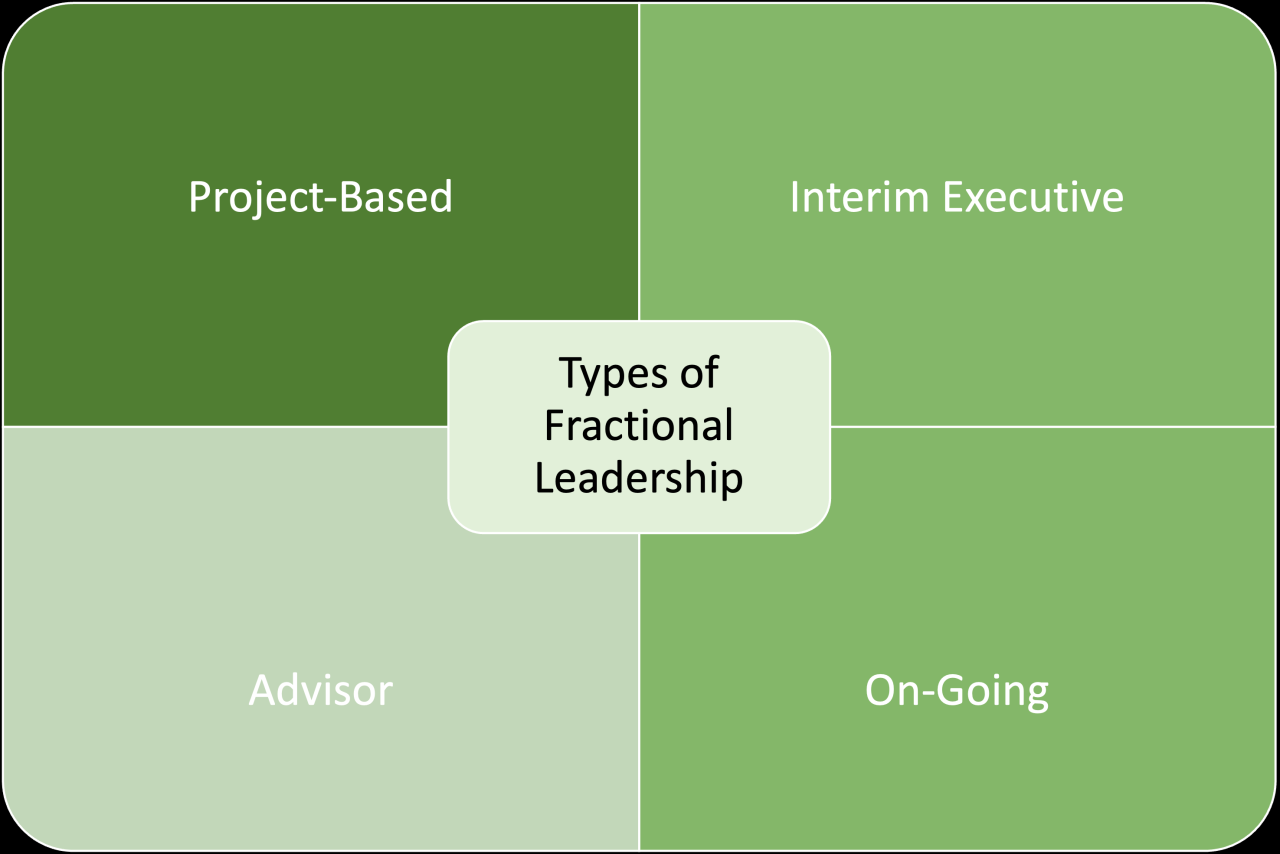Fractional HR leadership is an innovative solution for businesses seeking to optimize their HR functions without the expense and commitment of a full-time HR manager. This tailored approach provides access to experienced HR professionals on a part-time or project basis, offering a cost-effective and flexible way to address critical HR needs.
By partnering with a fractional HR leader, businesses can benefit from a wide range of services, including strategic HR planning, talent acquisition, employee relations, and compliance management.
Fractional HR Leadership Definition
Fractional HR leadership is a flexible and cost-effective way for organizations to access senior-level HR expertise without the need for a full-time HR executive. Fractional HR leaders typically work on a part-time or project basis, providing organizations with the HR support they need without the overhead costs of a full-time employee.
There are several different fractional HR leadership models, each with its own advantages and disadvantages. Some common models include:
- Part-time fractional HR leader:This model involves hiring a fractional HR leader who works a set number of hours per week or month. This is a good option for organizations that need regular HR support but do not need a full-time HR executive.
Fractional HR leadership is a great way to get your foot in the door of organizational leadership. With a master’s in organizational leadership, you can learn the skills you need to succeed in this field, such as strategic planning, human resource management, and financial management.
Learn more about what you can do with a master’s in organizational leadership and how it can help you advance your career in fractional HR leadership.
- Project-based fractional HR leader:This model involves hiring a fractional HR leader to work on a specific project, such as developing a new HR policy or implementing a new HR system. This is a good option for organizations that need HR expertise for a specific project but do not need ongoing HR support.
- On-call fractional HR leader:This model involves hiring a fractional HR leader who is available on an as-needed basis. This is a good option for organizations that need occasional HR support but do not need regular or ongoing HR support.
Fractional HR leadership can provide several benefits to organizations, including:
- Cost-effective:Fractional HR leadership is a more cost-effective way to access senior-level HR expertise than hiring a full-time HR executive.
- Flexible:Fractional HR leaders can be hired on a part-time or project basis, which gives organizations the flexibility to scale their HR support up or down as needed.
- Expertise:Fractional HR leaders typically have extensive experience in HR, which can provide organizations with the expertise they need to make informed HR decisions.
However, there are also some drawbacks to fractional HR leadership, including:
- Lack of continuity:Fractional HR leaders may not be available on a regular basis, which can lead to a lack of continuity in HR support.
- Limited authority:Fractional HR leaders may not have the same level of authority as a full-time HR executive, which can limit their ability to make decisions.
- Cultural fit:Fractional HR leaders may not be a good cultural fit for an organization, which can lead to conflict and disruption.
Overall, fractional HR leadership can be a valuable option for organizations that need HR support but do not need a full-time HR executive. By carefully considering the benefits and drawbacks of fractional HR leadership, organizations can make an informed decision about whether this model is right for them.
Fractional HR Leadership Responsibilities

Fractional HR leaders typically handle a wide range of responsibilities, often tailored to the specific needs of the business. Some of the most common responsibilities include:
- Developing and implementing HR strategies and policies
- Recruiting, hiring, and onboarding new employees
- Managing employee performance and development
- Handling employee relations and resolving conflicts
- Ensuring compliance with employment laws and regulations
- Providing HR support and guidance to managers and employees
Compared to traditional HR managers, fractional HR leaders typically have a broader range of responsibilities. They may be responsible for all aspects of HR, from strategic planning to day-to-day operations. This can be a valuable asset for businesses that need a comprehensive HR solution without the cost of a full-time HR department.
Fractional hr leadership provides a cost-effective solution for organizations seeking expertise without full-time commitment. Consider pursuing a masters in higher education leadership to enhance your understanding of leadership principles and their application in higher education institutions. This specialized degree equips you with the knowledge and skills to navigate the complexities of fractional hr leadership, enabling you to effectively support organizations in achieving their strategic goals.
Value Proposition of Fractional HR Leadership
Fractional HR leadership offers a number of benefits for businesses, including:
- Cost-effectiveness:Fractional HR leaders are typically more cost-effective than traditional HR managers, as they only work on a part-time basis.
- Flexibility:Fractional HR leaders can be hired on a flexible basis, which can be helpful for businesses with fluctuating HR needs.
- Expertise:Fractional HR leaders often have a wealth of experience and expertise, which can be beneficial for businesses that need help with specific HR issues.
- Objectivity:Fractional HR leaders are often more objective than traditional HR managers, as they are not directly involved in the day-to-day operations of the business.
Fractional HR Leadership Hiring

Hiring a fractional HR leader is a strategic decision that can significantly impact your organization’s success. Here’s a comprehensive guide to help you navigate the hiring process and find the right candidate for your needs.
Qualities and Skills to Look For
- Strong HR Expertise:Look for a candidate with a deep understanding of HR principles, best practices, and legal compliance.
- Business Acumen:A fractional HR leader should have a solid understanding of business operations and be able to align HR strategies with organizational goals.
- Communication and Interpersonal Skills:Excellent communication and interpersonal skills are essential for building strong relationships with employees, managers, and stakeholders.
- Flexibility and Adaptability:Fractional HR leaders often work with multiple clients, so they must be flexible and adaptable to meet changing needs.
- Proven Track Record:Look for candidates with a proven track record of success in HR leadership roles.
Hiring Process
- Define Your Needs:Determine the specific HR functions and responsibilities you need support with.
- Search and Screen Candidates:Reach out to recruitment agencies, HR networks, and online platforms to find potential candidates.
- Conduct Interviews:Interview shortlisted candidates to assess their skills, experience, and cultural fit.
- Negotiate Terms:Once you’ve found a suitable candidate, negotiate the terms of the agreement, including compensation, hours, and deliverables.
- Onboard and Integrate:Provide the fractional HR leader with clear expectations, resources, and support to ensure a smooth onboarding process.
Onboarding a Fractional HR Leader
Onboarding a fractional HR leader effectively is crucial for their success. Here are some key steps to consider:
- Introduce to Key Stakeholders:Connect the fractional HR leader with key employees, managers, and stakeholders.
- Provide Company Overview:Share relevant company information, including culture, values, and strategic goals.
- Set Clear Expectations:Artikel the specific roles, responsibilities, and deliverables expected from the fractional HR leader.
- Provide Resources and Support:Ensure the fractional HR leader has access to necessary resources, including HR software, employee data, and support staff.
- Regular Check-Ins:Schedule regular check-ins to monitor progress, provide feedback, and address any challenges.
Fractional HR Leadership Case Studies

Fractional HR leadership has gained popularity due to its flexibility and cost-effectiveness. Let’s explore some successful case studies to understand its impact:
Challenges and Successes, Fractional hr leadership
Challenges:
- Integrating fractional HR into existing HR teams
- Defining clear roles and responsibilities
- Ensuring alignment with organizational goals
Successes:
For organizations seeking interim leadership without the commitment of a full-time hire, fractional HR leadership provides a flexible solution. Its tailored approach can support specific projects or bridge gaps during transitions. If you’re pursuing further education in educational leadership, consider exploring m.ed educational leadership programs.
They equip you with the skills and knowledge to navigate the complexities of educational administration. By leveraging fractional HR leadership and pursuing an m.ed, you can enhance your leadership capabilities and drive organizational success.
- Improved HR efficiency and effectiveness
- Enhanced employee engagement and retention
- Reduced HR costs
ROI of Fractional HR Leadership
The ROI of fractional HR leadership can be significant. Studies have shown that organizations can save up to 50% on HR costs while improving HR outcomes.
Quantifiable Benefits:
- Reduced HR expenses
- Increased employee productivity
- Improved compliance and risk management
Intangible Benefits:
- Access to specialized HR expertise
- Improved employee morale and culture
- Enhanced organizational agility
Final Summary
In conclusion, fractional HR leadership is a valuable resource for businesses seeking to enhance their HR capabilities without the overhead of a traditional HR department. Its flexibility, cost-effectiveness, and access to expertise make it an ideal solution for organizations of all sizes.
FAQ Resource
What is fractional HR leadership?
Fractional HR leadership is a model where a part-time HR professional provides HR services to multiple organizations on a flexible basis.
What are the benefits of fractional HR leadership?
Fractional HR leadership offers cost-effectiveness, flexibility, and access to expertise.
How do I hire a fractional HR leader?
Look for candidates with relevant experience, strong communication skills, and a deep understanding of HR best practices.